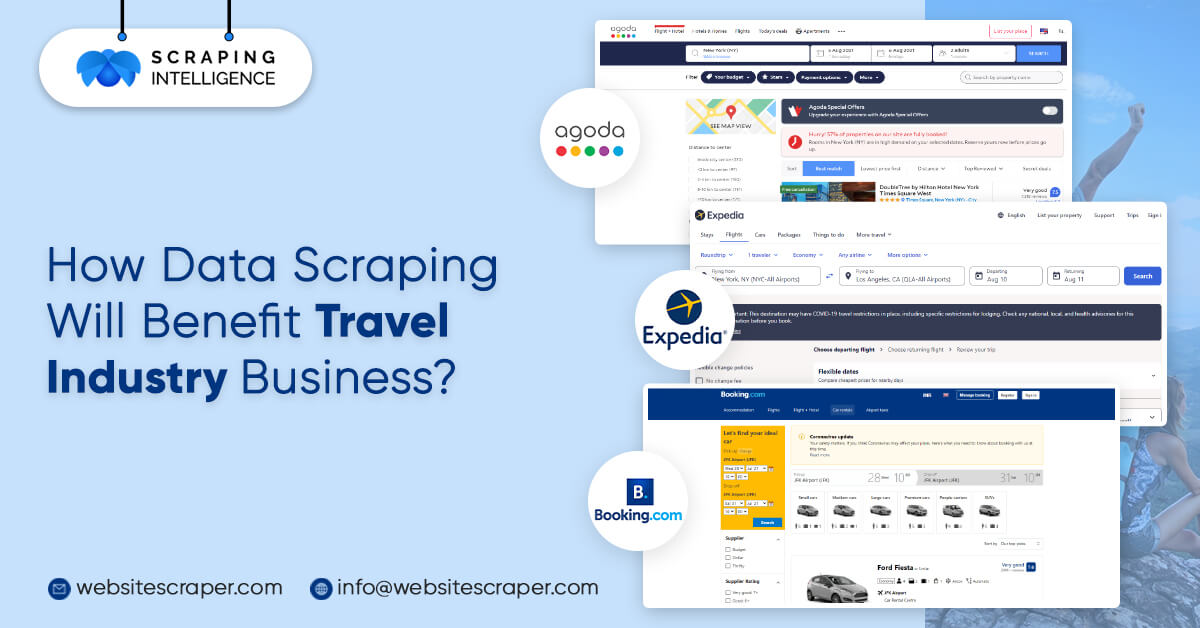
In most countries at the moment, the travel market is a significant service sector. It is also a significant source of income and revenue. This necessitates a lot of continual invention and upkeep. The tourism industry is a growing industry in which a customer’s demands and tastes vary daily.
To improve their performance over time, market participants in this profession must stay up to date with industry developments, customer preferences, and even the specifics of their prior performance. As you might expect, travel firms require a huge amount of information from a multitude of providers, as well as a pipeline to review and then use that information for observations and suggestions.
Data scraping from websites and other new sources is among the most widely used techniques for acquiring this type of information. Scraping travel data is a necessary aspect of most information sectors and businesses. In a variety of ways, the travel business has benefited as well. Let’s go over some of these advantages.
Before we get into that, let’s go over what web harvesting can do for you and how you might use it successfully in the hospitality and tourism business.
How Web Scraping is Used in Travel Industry?
It is important to resolve the issues that the travel industry is facing nowadays. Travel data scraping will help you understand the market and industry trends in travel pricing, updated travel itineraries and locations, new aircraft and transportation providers, and even information on delayed flights, ports, and railway station updates, among other things. You can also scrape information on customer feedback, interests, and even mood. Most travel agencies and organizers make this information available to the public. Social networking platforms can also be used to obtain this type of information.
This information can assist travel companies, hotels, travel aggregators, as well as other network operators in providing customers with the best possible selections. It will also contribute to the expansion of hospitality & tourism by increasing customer sentiment. This information can be used for several purposes, including easy listings, price comparisons between different airlines, explanatory and inquisitive analytics such as share of the market analytics, and analyzing travel trends to key
platforms services that increase cash flow for the company.
Formation of Data Scraper that is Used by The Travel Industry
Travel Industry
We’ll go over the method that can extract flight information from MakeMyTrip. You must first establish the details of all aircraft traveling between numerous combinations of a specified list of cities on a specific range of dates if you want to scrape them. To accomplish so, use the following code:
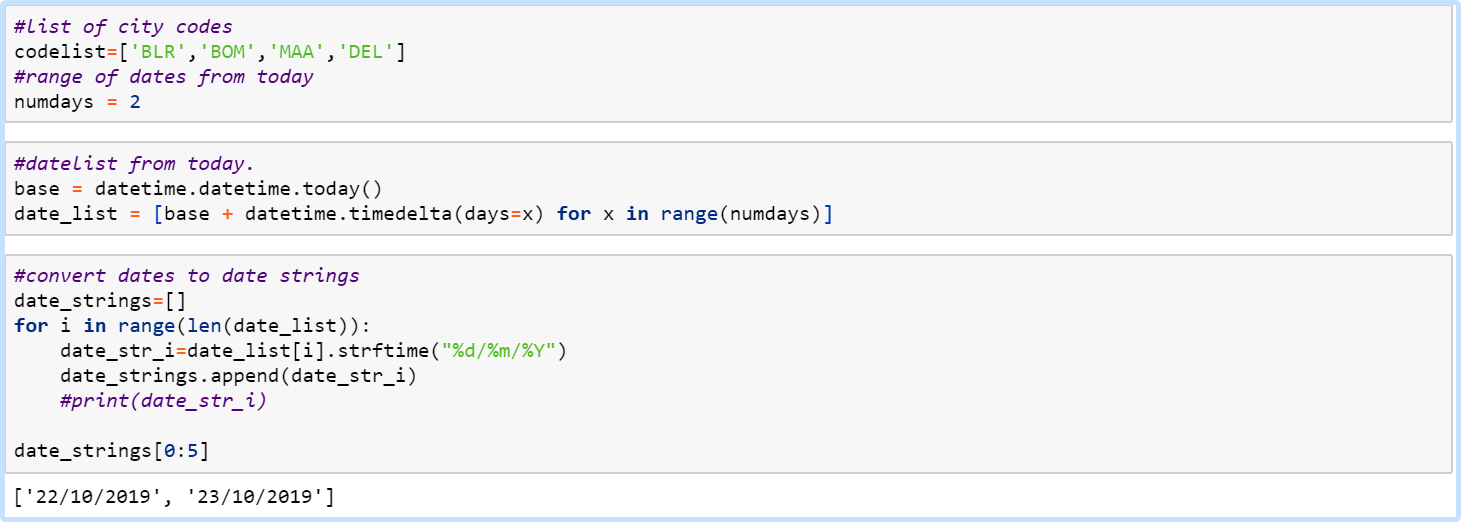
We now need to loop through the zoning rules and dates list in the form of an array to build the whole URL (or website address) to retrieve the information. This is done in a loop. It contains a clever logic that relates every city to a different part of the city in the database you specify, then repeats through each date.
The base template of the source URL or website from which you want to obtain information is then added using these string values. This can be accomplished in the various ways as follows:

Once you gain the entire URL, there are basic steps:
- Go to the website specified by the URL.
- Locate the document body and save its HTML structure once the material on this website has begun to load. This will provide you with all of the data you require.
- Close the connection.
- Parse the gathered data into a more defined and systematic format so that you can use the webpage’s labels and components.
- To retrieve the right values, retrieve the necessary tags.
- This information should be extracted and saved in an organized format, either CSV or text file.
The above steps are executed with the help of a simple Python script.
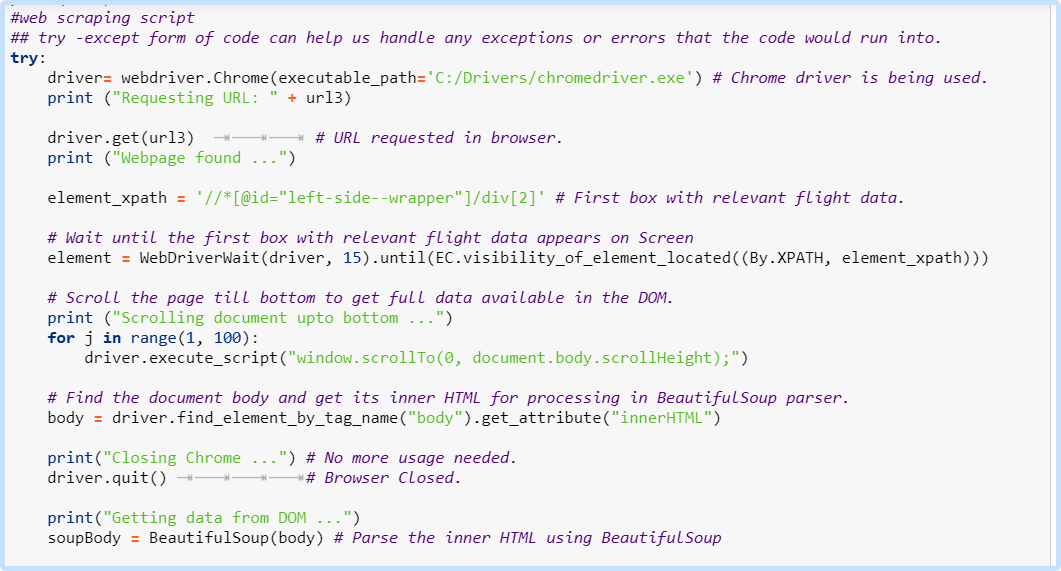
Some multiple channels and libraries can quickly complete this task for you. For this, we used Python’s Selenium and BeautifulSoup. We gathered the following information:
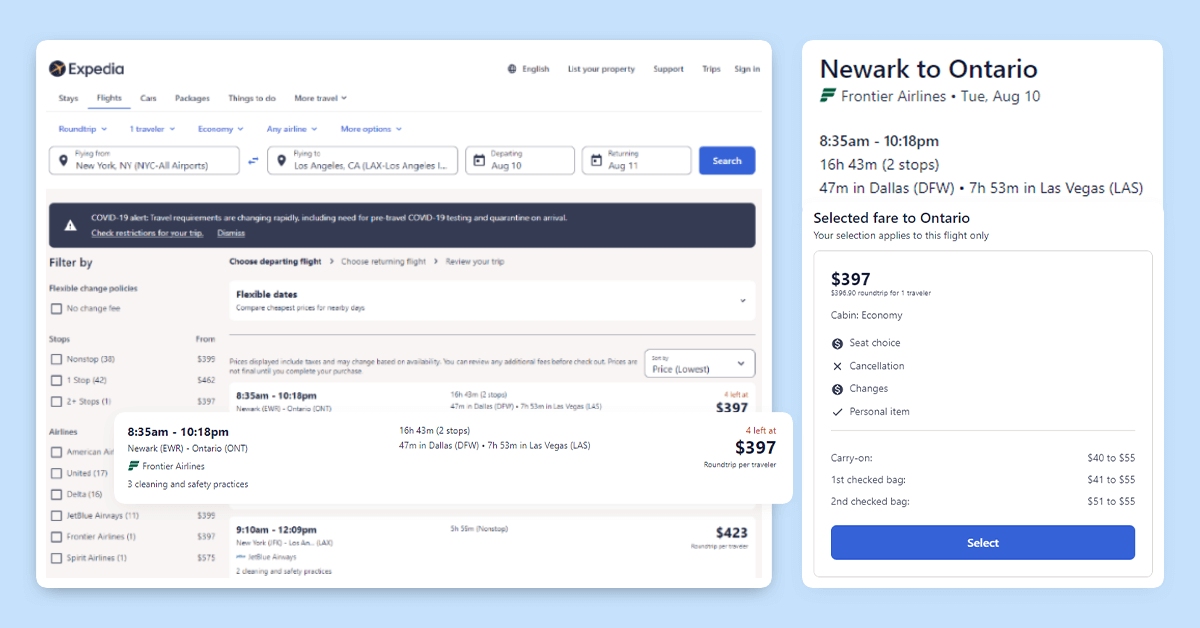
- Name of the Airline
- Flight Number
- Time and Place of Arrival
- City and Time of Departure
- Duration of the flight
- Cost of a Flight
We can save the information in the CSV file format:
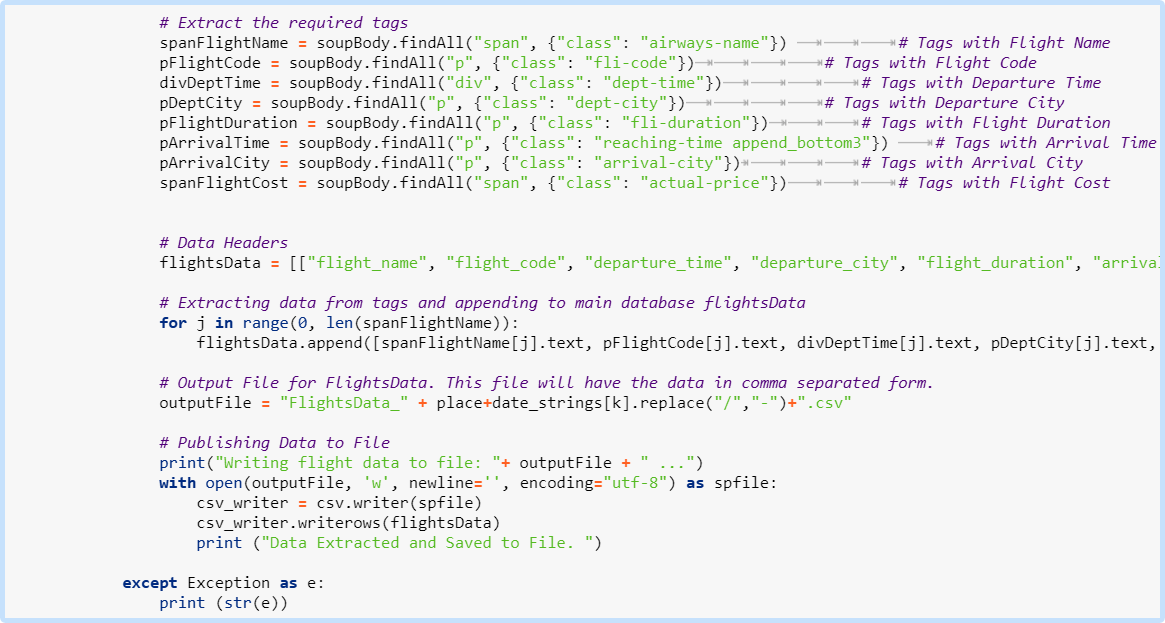
Benefits of Data Extraction for the Travel industry
Check the advantages of data scraping:
- When compared to other traditional techniques of gathering data from sources such as the Internet, web scraping is a faster procedure.
- You can retrieve information in any organized format you like, such as CSV, XML, or Excel files. You can use SQL databases to store it.
- The majority of web scraped data can be used right away without any subsequent operations. This data is helpful for a variety of business difficulties due to its high quality and veracity.
- Scraping data in an automated algorithmic manner has a higher accuracy since it is not inaccurate or misunderstanding.
Scraping information in an artificial computational manner has a greater precision since it is not inaccurate or misunderstanding.
In the travel industry, below are some sample problem statements that make use of scraped data.
1.Comparative Price Assessment
You can collect costs from a variety of airlines, resorts, bus routes, and other tourism and leisure services that are relevant to your organization. When you have this information, you should compare your pricing to market averages and make recommendations for price adjustments based on your competitors’ tendencies.
2.Market Share Assessment
Many tour operators employ data harvesting to do market share research and compare their brands to those of their competitors. They rely on revenue and profit figures, as well as other socio-economic statistics. Scraped data is used by some of the world’s largest travel companies to learn about their revenue and drivers.
3.Create successful marketing strategies
Some businesses collect data from multiple sources of client feedback platforms and social networking sites to understand a customer’s overall opinion of service, offer, or product.
4.Predict hotel, performance, occupancy
If you manage a luxury hotel or a travel aggregator/service provider, you may wish to forecast how often you traffic may anticipate over a given time. This will assist you in allocating resources and developing marketing strategies. For the number of bookings and successful trips, you can utilize historical data.
You may use scraped information to create a repository that links to your dashboards and analytic processes for all of your other needs. Scraped data can also assist you in solving a variety of other issues.
Conclusion
While information scraping assists you in solving a variety of difficulties, you must be cautious of logistical challenges. Gathering the relevant information lawfully with the required permits should be your top priority. Certain characteristics of data scraping make it a legal procedure. All of them should be followed.
The travel sector has benefited from information scraping in a variety of ways. Many advanced data scraping companies provide dedicated data scraping services. Scraping Intelligence has assisted several firms in a variety of industries in collecting information and using it to resolve critical business challenges. We use a thorough system to deliver data to you in the format you desire.







